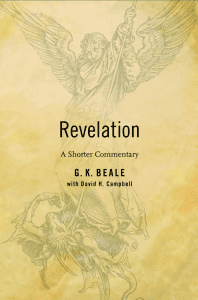I am convinced that most of what is said about the future — and about eschatology — and about the Revelation of John in particular — in most churches today is mostly wrong. Western evangelicals somehow got sidetracked by the rise of Dispensationalism, it stuck to many evangelicals like glue, and today I rarely hear evangelical sermons about either Revelation or eschatology that spend the time to know (1) what the Bible says and what it does not say, (2) how ancient prophetic and apocalyptic language works, (3) what eschatology was like in Judaism that gave rise to the eschatology of early Christians, and (4) what the Church has actually believed.
It was this situation that gave rise to Tom Wright’s book Surprised by Hope, and that book is beginning — God be thanked — to make an impact for the good on how we need to understand and appropriate eschatology. There’s so much to do. What must be done the most is “convert the imagination” of the Church back into a robust biblical eschatology.
 Michael Gorman, Reading Revelation Responsibly: Uncivil Worship and Witness: Following the Lamb into the New Creation is one recent scholar who gets it.
Michael Gorman, Reading Revelation Responsibly: Uncivil Worship and Witness: Following the Lamb into the New Creation is one recent scholar who gets it.
The situation of the Book of Revelation, while it can’t be known with utter certitude, is made up of the following two elements:
Imperial idolatry (civil religion)
Imperial injustice (military, economic, political, religious oppression)
This book is not designed for speculators but for the oppressed; it is designed to tell them in graphically prophetic and concrete language that the Enemy will come to justice and the People of God will be vindicated.
But this leaves the Book of Revelation with an “application” problem:It is so Roman that we must learn to read it over against Rome. But, at the same time, it speaks to Empire ideology at all times — with graphic warnings that Doomsday means Justice.
Gorman points out (most helpfully) that the crisis this book dealt with was not just a crisis of oppression and Empire, but that the Christian church had become complacent and complicit.
This context explains the Liturgical Focus of Revelation.
The central and centering vision of the book is worship of God and the Lamb. This means a call to abandon false deities and worship the true deity.
Worship was a political action, is, and always will be: it is the enthronement of the one true God.
Gorman thus points to the “music of heaven” and sees these texts as rooted in early Christian worship: 4:8, 11; 5:9-10, 12, 13b; 7:12; 11:17-18; 15:3-4. It would make this post too long to quote each of these, but I will quote 15:3-4:
3 and sang the song of God’s servant Moses and of the Lamb:
“Great and marvelous are your deeds,
Lord God Almighty.
Just and true are your ways,
King of the nations.
4 Who will not fear you, Lord,
and bring glory to your name?
For you alone are holy.
All nations will come
and worship before you,
for your righteous acts have been revealed.”











